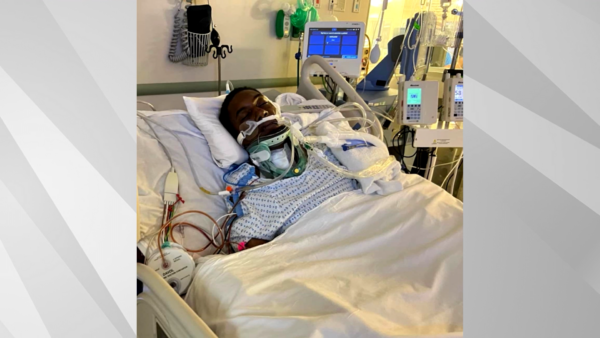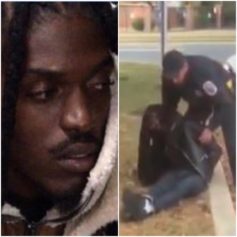The family of a Connecticut man paralyzed after traveling in a police van is calling for federal civil rights charges against the officers who reportedly mistreated him.
Civil Rights attorney Ben Crump compared the case to that of Freddie Gray, a 25-year-old Black man who died of spinal cord injuries while in Baltimore police custody in 2015. In Gray’s case, police falsely reported that he broke his own neck. But Randy Cox’s moment of the causality was caught on video.
Cox, 36, was being transported to the New Haven police station on June 19 after being arrested for having “a bottle of booze” and unlawful possession of a firearm. A handcuffed Cox was not fastened with a seat belt, and video footage shows the man fell off the van’s bench and banged his head on the back wall as the driver stopped abruptly.

The officers ignored Cox’s pleas for help and delayed medical treatment for the man. He was instead dragged out of the police van, forced into a wheelchair, lugged into a jail cell and shackled before receiving a medical assessment. Cox’s sister, LaToya Boomer, said the driver passed two hospitals on his way to the jail.
Cox broke his neck, and he is immobile from the chest down. He is currently living off breathing and feeding tubes. His family and attorney said the officers violated Cox’s constitutional rights.
“You ask yourself, was it cruel and unusual punishment to put him in the back of that police transportation van with no seat belt, knowing that if you’re speeding, if you slam on the brakes, that somebody is going to be seriously injured?” Crump said during a press conference ahead of meeting with the U.S. Department of Justice on Friday, July 8.
Reports show officer Oscar Diaz was driving 11 miles over the speed limit and hit the brakes to avoid colliding with another vehicle.
Cox, stunned by the blow to his head, immediately asked for help, the video shows. When Diaz checked on the man, Cox told him he couldn’t move. Diaz reported the issue to dispatchers and asked them to categorize the transport as an emergency. Still, when Diaz arrived at the jail with Cox, the officers instructed him to move several times, despite being advised of his condition.
They pulled Cox out of the van by his feet and lifted him onto a wheelchair. One of the officers dismissed Cox’s claims of the injury and accused him of being drunk. He has since undergone several surgeries, according to his family.
The video has spurred protests, with hundreds marching to the police station on Friday, July 8.
“If I say my neck is broke, don’t take it as a joke,” the crowd chanted.
New Haven Police assistant police chief Karl Jacobson condemned the officers during a June 28 press conference.
“Mr. Cox was mistreated. He should have received medical attention immediately. We can’t defend anything that was released,” Jacobson said.
Five officers have been placed on administrative leave amid a state police investigation. The department has implemented reforms limiting the use of police vans for transporting detainees and requiring officers to immediately call an ambulance if a person is in need of medical aid. The agency will review detention center policies, conduct random checks of detention area personnel’s body cameras and uptrain employees.
“I want to reiterate that what happened to Mr. Cox is unacceptable, and we’re committed to making these necessary changes,” mayor Justin Elicker said during a June 7 press conference announcing the reforms.
However, Cox’s family and community leaders said the reforms do not address the culture within the police agency that led officers to mishandle the Black man.
“Why do you need a policy that says if someone needs help for you to give them help?” Boomer said. “That should never have to be a policy. That should be in your own brain already.”
“I — slash we — want them fired and arrested, and I’m going to keep saying it until it happens.”


